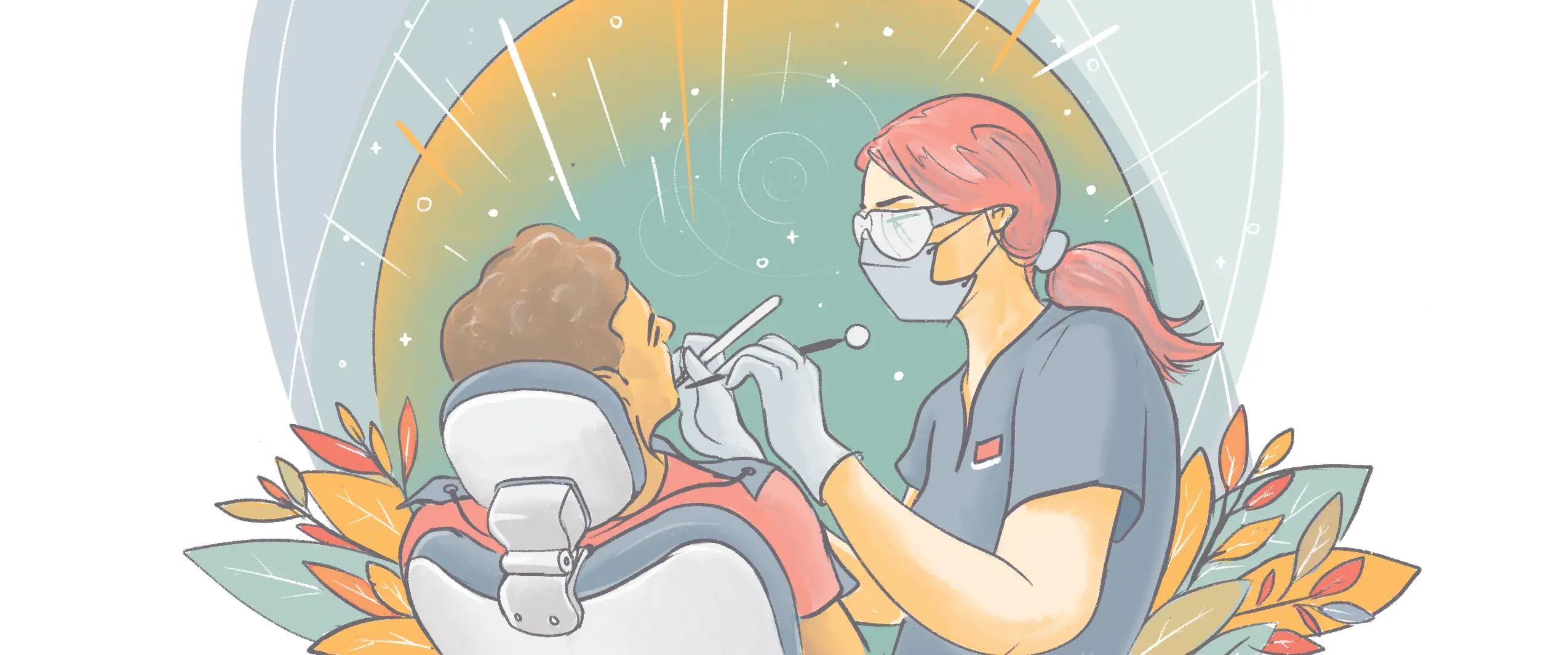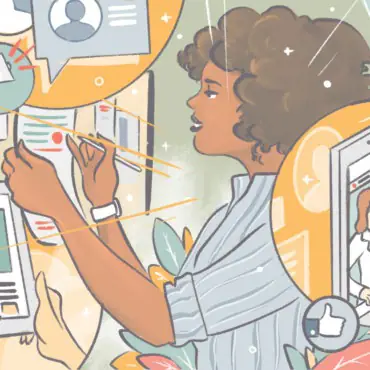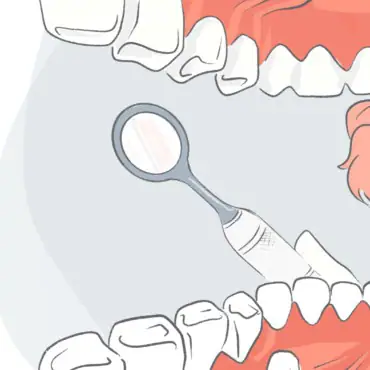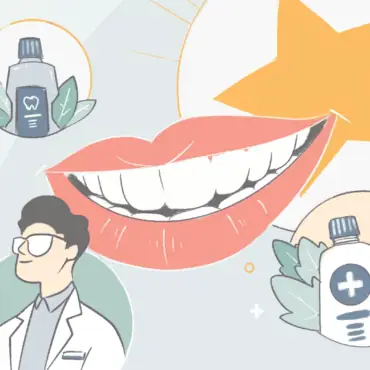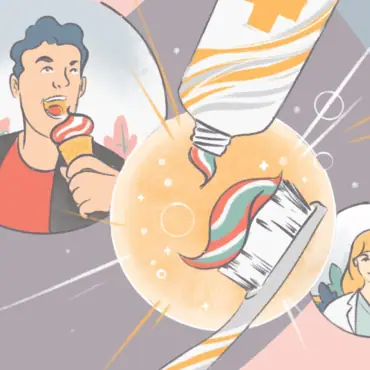Going to the dentist sometimes gets a really bad rap, but, rest assured, some of the nicest people we know are dentists. Think about it. Only someone who really has your best interests at heart would be interested in poking around in people’s mouths for a living.
Many patients feel a little nervous about going to the dentist. So we’ve answered some common dentist visit FAQs here so you can get a better idea of how innocuous a visit to the dentist actually can be.
Let’s get started!
Will it hurt to go to the dentist?
This is a big one for people. They hear horror stories from people who like to exaggerate about dental pain. (Or met one of the very few people who has had a bad experience in the dentist’s office).
Regardless, just imagining someone messing with their teeth is not their idea of fun.
We are happy to report that the vast majority of people do not experience pain in the dental office. There is some occasional discomfort, particularly if you have inflammation in your gums or the beginnings of periodontal disease. But your dentist can alleviate this discomfort with local anesthetic and other methods when necessary.
How do I calm my fear of the dentist?
While we don’t want to diminish your fear, we do want to encourage you. Your dentist will not deliberately do anything to harm you or cause you pain. On the contrary, they will do everything possible to make you comfortable during your visit.
To help ease your fears, let the office know when making your dentist appointment so they can be prepared. Choose a dentist who has good reviews and is top-rated. Optionally, you can find a dentist that offers nitrous oxide or sedation dentistry to help you feel as relaxed as possible during your visit.
We reward you for staying on top of your health!
Why do my gums bleed at the dentist?
A little bit of bleeding at the dentist is perfectly normal, especially if you aren’t as faithful with your daily dental hygiene as you should be. Your gums will be a bit more sensitive.
However, if you floss every day and make regular trips to the dentist, your teeth and gums will be healthy and strong. This will help diminish or eliminate any bleeding or dental pain.
How often should I go to the dentist?
It is generally recommended that most people should see a dentist twice a year. If you have exceptional dental health and hygiene habits, you might be able to get away with going only once a year or every nine months.
People who are more prone to dental problems or practice harmful habits such as smoking or vaping should see a dentist more often.
Ask your dentist how often they recommend that you be seen based on your individual factors.
Is it bad that I haven’t been to the dentist in a long time?
Well, it’s not necessarily bad, per se. But it’s definitely not the best for your oral health. Regular checkups ensure that dental diseases and problems are caught early on – when they’re easier to treat.
Plus, professional cleanings will remove all the plaque and tartar from your teeth. Clean chompers are key in preventing tooth decay and periodontal disease.
In short, if you haven’t been seen in a while, it’s time to find a dentist and get started. Don’t worry about anybody jumping down your throat about staying away for so long. Dental professionals will congratulate you on your good decision now and move forward from there.
How much does a dental check up cost?
The cost of a dental checkup varies depending on location and a few other factors. On average, expect to spend about $288 for an exam, x-rays, and cleaning.
But, don’t forget about dental insurance. Many employers offer affordable dental insurance to their employees. Depending on the type of insurance you have, your out-of-pocket cost could be $0 for a routine visit.
See our full guide to dental insurance and how much you’ll pay at your visit here.
What are some signs I should see a dentist?
Everyone should see a dentist a couple of times a year. Of course, there are a few signs that mean your dental visit should move up to urgent status on your to-do list. Here are some symptoms to watch out for:
- Toothaches
- You haven’t been in 6 months-1 year
- Jaw pain
- Sensitivity to hot or cold
- Persistent bad breath or a foul taste in your mouth
- Inflamed, bleeding gums
- Pain or swelling in your mouth, face, or neck
- Uneven bite
- Your jaw sometimes pops or it is painful to chew
- You’re having trouble chewing and swallowing
- You notice a strange spot or sore in your mouth that won’t heal
In other words, if you notice anything out of the ordinary in your mouth, it’s time to visit a dentist.
Do dentists check for signs of oral cancer?
Yes. Your dentist will typically perform a visual inspection of the soft tissues in your mouth as well as the skin on your head and neck.
Dental x-rays can also help detect oral cancer long before signs appear on the surface.
Due for a checkup?
Find a top rated dentist near you that takes your insurance.
I don’t have any symptoms. Should I still see a dentist?
Yes! Always visit your dentist when you’re due for a checkup. Many dental issues, such as cavities, start out painless and symptomless.
For example, you generally won’t feel a cavity until it eats through your tooth to touch the soft pulp in the middle. But your dentist will be able to see the cavity forming on the tooth’s surface long before that happens.
What’s the difference between DDS and DMD?
There really isn’t one. To get the Doctor of Dental Surgery or the Doctor of Dental Medicine dental professionals undergo the same training. One just graduated from a dental school while the other graduated from a medical school. They both have to take the same written and clinical licensing exams in order to practice.
What can I expect during my checkup?
The dental checkup procedure doesn’t vary much from one practice to another. Your dentist or hygienist may ask you a few questions about your medical history. They’ll typically perform a professional cleaning to remove all plaque and tartar from your teeth.
They’ll also do a visual oral cancer screening check and check your gums for gum disease.
Last, but not least, they’ll determine if you need dental x-rays. If they decide you do, they’ll snap some beautiful black and white photographs and send you on your way.
When should I get to my dentist appointment?
Plan on arriving a few minutes early to give yourself time to get settled. The receptionist may also ask you to fill out a form with some basic health questions so the dentist has this information on hand.
Currently, many offices are asking patients to wait outside the office. Then they send a text when they are ready for you. Just be sure to abide by any infection protocols you are asked to follow.
Do I need x rays when I go to the dentist?
Not always. Each person is different, but the average person with good dental health only needs dental x rays about once every 2-3 years.
If you have a family history of dental problems, your dentist may recommend taking x rays more frequently. Furthermore, if your dentist notices anything that looks out of the ordinary during your regular exam, they may recommend taking x rays to get a closer look.
How do I book a dentist appointment?
How’d we do? Are you feeling more at ease about visiting the dentist? Are you more convinced about the necessity of visiting the dentist regularly? Then we’ve done our job.
We reward you for staying on top of your health!
It’s also time for us to help you find a dentist near you and get you set up with an appointment. The online booking platform on Opencare makes it super easy. Just take a super-short quiz and we’ll match you with a professional we believe you’ll like. Then you can contact the office and set up a dentist appointment.
Don’t worry about having to shop around and pick the right dentist on your own. Let Opencare help you with all your dental health needs and level up your oral wellness today.


